This blog post contains testimonials from military students from Canada and the Coast Guard enrolled in Boise State University’s online Master of Science in Organizational Performance and Workplace Learning (OPWL), which prior to 2013 was known as the Master of Science in Instructional and Performance Technology (IPT). This post contains testimonials from the classes of 2005-2019.
Gail Bolt, Class of 2005
Major Canadian Forces Training Development Officer
National Defense Headquarters for the Chief of Military Personnel
Truthfully I was dreading online learning because of previous experiences within my own organization. I could have chosen another institution that did offer instructional technology (IT) that was about an hour drive from my house but there was not anything with the performance technology (PT) side in the curriculum. So convenience and quality of life for my family being taken into consideration, online was the only option for me.
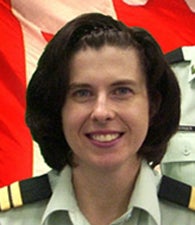
After starting the program, I was pleasantly surprised at how much I felt to be a part of the community and I actually miss it now that I’ve graduated. I am also proud to say that my organization is really evolving and we are getting better at online learner support.
I would like to add that the success I had with the IPT program as a part-time student was convincing enough that commencing in September 2007 the organization is sponsoring the very first full-time student (that is the military member attends a Masters program full-time for two years).
From my perspective I consider that a huge endorsement because up until this point they refused to fund anything other than attendance at Canadian Institutions. The selling point was that Boise State offers a quality degree in an area that is not being addressed in our own country and the knowledge and skill being imparted is vital and important to the organization.
Jerry Hubbard, Class of 2007
Lt. Commander
United States Coast Guard (USCG)
Beating Hurricane Katrina – Neither Wind Nor Rain deter this Coastie from his IPT degree.
(written by Margaret Scott, originally published in the spring 2007 College of Engineering Newsletter.)
Sometimes, finishing graduate school takes longer than expected. Just ask United States Coast Guard Lt. Commander Jerry Hubbard who will finally receive his Master of Science degree in Instructional & Performance Technology this May after delays in 2004 by Hurricane Ivan and in 2005 by Hurricane Katrina.
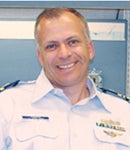
“I ended up having to drop out both of those fall semesters because it was just impossible to keep up,” he said.
Hubbard’s main job in the Coast Guard is to get deep water ports open following hurricanes so that goods can move again. With the massive damage during two record-breaking, back-to-back hurricane seasons, he found himself working 16-18 hour days for weeks at a time clearing debris and remarking waterways to get traffic moving.
“We focus hard on reopening the deep water ports for deep draft vessels, and the Gulf Intracoastal Waterway to allow barge traffic to move along the coast,” Hubbard said. “The public infrastructure depends on these waterways. The Florida panhandle receives a majority of their fuel by barge, and coal reaches the power plants by barge. So the waterways being open to commerce is critical to human health and safety.”
Last fall in 2006, Hubbard didn’t sign up for any classes anticipating another dangerous hurricane season. Instead, storms were less severe and he probably could have finished his coursework instead of waiting until spring. But this time, there aren’t any barriers.
“Now, I’ve only got four weeks left on an internship and then I’m finished,” the 21-year veteran said recently. “You know if I’d taken a class in the fall, we’d surely have had a major hurricane.”
The 2004 and 2005 hurricane seasons were among the deadliest and most destructive in history. Hurricane Ivan caused $13 billion in damage in the United States and killed 92 people while Hurricane Katrina caused more than $81 billion in damage across Louisiana and Mississippi. Katrina battered communities with wind, rain and storm surge and killed 1,836 people in seven states.
Such terrible storms keep Hubbard’s Coast Guard unit very busy with search and rescue efforts to save lives. From his Mobile, Alabama station, the Incident Command System the Coast Guard employs can find units stationed as far away as Texas while dealing with a severe storm. Hubbard says his unit’s ability to succeed in their mission can be dependent on the support structure, which is likely to be damaged. They have to work diligently to restore those assets and often it is in a temporary mode until time permits permanent repairs. He manages a large division that provides administration, supply and engineering support for 19 small field units and more than 700 people, which gives him numerous process and opportunities for human performance improvement.
Hubbard joined the Coast Guard in 1985, was selected for Officer Candidate School in 1992, when he switched to the environmental protection field. When he decided to pursue a graduate degree he looked at the list of Coast Guard approved programs. “I called numerous Coast Guard students who had studied in the Department of Instructional & Performance Technology at Boise State and they provided strong endorsements for the program, so I joined.”
Despite the hurricane delays, Hubbard is very glad he persisted. “I consistently find that my education in Human Performance Technology provides a framework for improving our world of work,” Hubbard said.
Brett Christensen, Class of 2010
Canadian Defence Academy
Directorate of Learning Innovation
In 2004 after an early mid-life career crisis, I left the field of naval acoustics to take on the role of a training officer. While pursuing my Training Development Officer qualification I was introduced to Boise State and the IPT program by two of my instructors who were enrolled in the program at that time. I was immediately enticed by the idea of being able to look at performance problems through the wider lens of a performance improvement practitioner versus a trainer. I resolved that HPT was the direction I was heading.
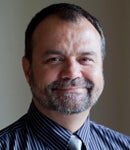
In 2007 my IPT journey began with acceptance into the program as a part time international student. I was impressed right off with the IPT Boot Camp and how the program was designed to set students up to succeed right out of the gate. My experience with every course was equally impressive. The faculty and staff were responsive to all my needs as a mature student working full time and juggling the responsibilities of a young family as well. Through the lens of an experienced e-learning designer, I was very pleased with the design and delivery of each course that I took. It was clear to me that Boise is a school that practices what it teaches. Throughout my studies I was able to use school projects to deliver performance improvement initiatives in my workplace, raising the profile of HPT and using what I was learning at the same time.
Completion of the M.S. Degree in IPT has been extremely rewarding both personally and professionally. Being a BSU graduate opened the door to promotion to Lieutenant Commander and a posting to a prestigious position at the Canadian Forces Warfare Center. I unreservedly recommend the IPT program to all my colleagues in defense training and development and to anyone I have met that is considering pursuing higher education in the performance field.
Award
Excellence in Practice Award Spring 2010
John Wyville, Class of 2013
Canadian Division Training Development Officer
Canadian Army
The tools and models learned during the OPWL program are infinitely flexible, and I use them on a daily basis to shape my work and achieve the results my organization needs. Prior to starting this program, I was a training development specialist. I was called in when the solution to a problem appeared to be oriented toward training. With the skills and knowledge gained through completing the OPWL program, I have a seat at the table every time there is a human performance problem.
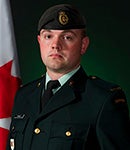
Christian Adams, Class of 2015
Assistant School Chief
National Aids to Navigation School (NATON)
Training Center Yorktown, VA
I have been active duty Coast Guard since July of 2000 with the first four years of my career spent at the Coast Guard Academy earning a Bachelors of Science in Civil Engineering as well developing skills and knowledge in Nautical Science, Organizational Behavior, and Leadership. Since then I have served on three cutters as Executive Officer, Operations Officer, and Deck Watch Officer conducting Domestic Ice Breaking, Aids to Navigation, and Counter Narcotic Law Enforcement. On shore I have served in Facilities Engineering and most recently as Assistant School Chief of the National Aids to Navigation School (NATON) located on Coast Guard Training Center Yorktown, VA.
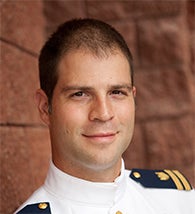
Involvement throughout my career in a great many training scenarios, both as learner and instructor/evaluator, led me to develop academic curiosity as to how training is received by the learner and a professional desire to improve the way training is delivered to fellow members of the Coast Guard. The Boise State Masters Program for Organization Performance & Workplace Learning (OPWL) has provided me just such an opportunity. The online program is designed for working professionals and involves actual analyses, evaluations and performance intervention design/development. My Coast Guard experience has offered me plenty of examples to draw from in academic discussion and I have been able to use the academic projects to address real world issues in my current Coast Guard assignment. I believe that participation in this program has improved my own performance at my current assignment and expanded my horizon to understand that there is so much more to performance improvement than training. Since BSU’s OPWL program is available via distance learning, I have pursued the degree while still completing the duties and responsibilities of my current assignment and I expect to complete the program within the scope of one tour. Although challenging, it has been rewarding and I recommend the program to any motivated working professional seeking online graduate opportunities.
Ben Lyons, Class of 2016
Lieutenant
United States Coast Guard
The OPWL program at Boise State has been an outstanding opportunity for me. The knowledge I gained will serve me as I continue my professional career in the United States Coast Guard at the Performance Technology Center, as well as provided me with new perspectives to problem solving and improvement that will serve beneficial in any career path.
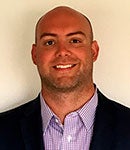
The professors in the program were engaged with the students, available nearly any time for “office hours,” and did an excellent job facilitating conversation throughout the weeks by guiding the students through their learning experiences. They brought an incredible amount of experience, knowledge, and preparedness to each week to provide challenging and rewarding experiences.
The students in the classes brought a wide variety of experiences and narratives to contribute to the learning environment. The sharing and practical application of the diversity of these groups helped me to gain a variety of real-world perspectives and allowed me to feel confident in my learning experience.
What I felt was the most beneficial aspect of this program was the project-based aspect of the courses. This allowed me to gain real-world experience working with clients and producing products that will benefit their organizations with the guidance of the professors throughout the process.
Publications
Lyons, B., Romano, M, & Weisberg, L. (2016, June). Case Study: Evaluation of the U.S. Coast Guard’s Electronic Performance Support System for the Fast Response Cutter. PerformanceXpress Newsletter, June ’16 issue.
Greg Jones, Class of 2019
Canadian Armed Forces
Training Development Officer
OPWL linked solid instruction with real world experience built right into the curriculum. As opposed to simulating clients and stakeholders, OPWL offers an opportunity to learn through working with real companies through completion of real projects such as needs assessments, evaluation and instructional design. That is part of what sets OPWL apart from other programs and yields a truly superior experience.
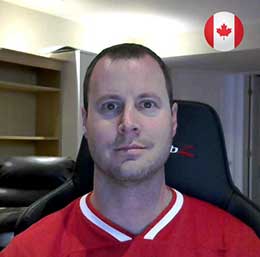
Award
Award of Academic Excellence